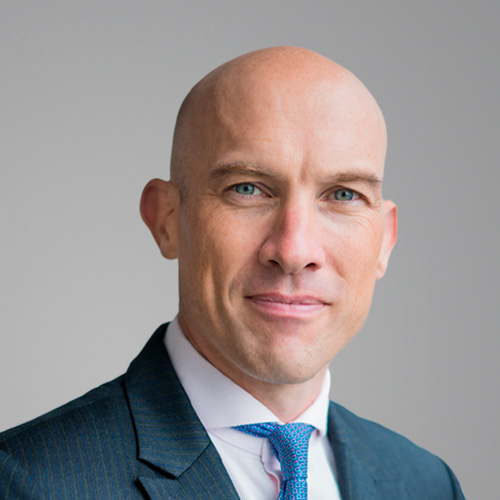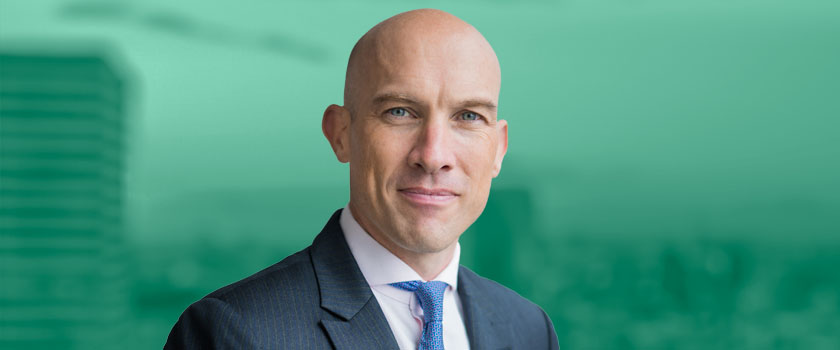Citywire (22.06.2022) - Michael Blake, Asia CEO of Union Bancaire Privée, was asked how UBP is supporting the region’s increasing push for sustainable investment and how this trend is feeding into his own approach to family life.
What do you see as Asia’s unique contribution and responsibility to the global ESG and SRI agenda?
Dynamism and vibrancy drive Asian economies. With a proven record of technological innovation, Asia has the capacity to bring about real change in the ESG and impact space. So much is going on with efforts to make clean energy technology reliable and efficient. Concerns about soaring oil prices and energy supply uncertainty are a factor in this shift in emphasis, but there is a real commitment to a cleaner and greener future. Even with backing from entrepreneurs and increasingly strong government support to embed key aspects of ESG principles and make ‘the net-zero transition’ happen, there is scope to do so much more.
It’s particularly encouraging to see commercial companies and the entrepreneur community supporting for-profit investment in sustainable themes. Asia demonstrates how to transition to a sustainable world as the region continues to invest in clean and tech-enabled manufacturing facilities.
How are you tackling the issue of consistent and credible data to measure the change in client portfolios and your bank’s impact?
Since the end of 2021, we have been providing ESG ratings at a portfolio and product level on client statements in the Europe, Middle East and Africa, and Asia regions.
We also actively screen the investment universe for ESG and socially responsible investment factors while setting and monitoring global targets so that actual performance is measurable.
A robust data gathering process is essential and we conduct extensive due diligence on our chosen data providers. We need to understand each one’s methodology and track record so that we can be confident in the accuracy of the information delivered. The data requirements are significant as they cover ESG, the UN’s Sustainable Development Goals contribution, carbon emissions and climate, and the complex issues around exclusion lists, collaborative engagement, principal adverse impact, proxy voting, controversial news and reputational risk.
We have to be confident about our selection of the most credible institutions in each of their specific areas of expertise. This helps clients navigate their responsible investment journeys while also monitoring our bank’s impact.
We also work closely with various organisations, external agencies and consultants to grow our knowledge and access the latest insights about industry developments and trends.
Finally, the launch of UBP’s 10 sustainability objectives in 2021 will help us gain a better understanding of our bank’s impact over time.
What has been the most innovative way you’ve engaged staff and clients in the ESG and SRI agenda in the last year?
We have shown our commitment with a significant ESG/SRI education programme for all our staff. Levels of engagement with the process were high.
The launch of our biodiversity strategy highlights UBP’s capacity to bring innovative products to the attention of investors quickly.
What differences in mindset and approach to ESG have surprised you within the diverse and demanding Asia region?
It’s a caricature that Asia lags the rest of the world in ESG adoption; the truth is more nuanced. Ultra-high-net-worth and institutional clients are interested in and able to invest right now. In fact, we see the strongest adoption among Gen Z, who are very much alive to the opportunities. We see momentum continuing to build but perhaps more towards the E rather than the S and G.
How is your bank approaching sustainability at a corporate level? Where can banks make the biggest impact?
Our role in solving the environmental and societal issues the world faces is to continue to make the strong investment case for sustainable investing. Conversations and contacts with clients are the best way to show the potential for ESG and impact investing to enhance returns.
At a corporate level, we are taking meaningful steps to reduce our own carbon footprint by 25% by 2025. We know that we can count on the fresh thinking of our diverse workforce to drive the progress we need.
With an emphasis on incorporating social responsibility into every aspect of our business, we recognise our role in supporting communities and promoting sustainable development.
After the initial wave of Asian client demand over the last two years, in 2022 how are you planning to further increase client demand for ESG and sustainable investing products?
Having started with long-only funds, we have broadened our offering to include multi-asset, structured products, a franchise of impact funds and private market investments.
It is vital to show clients a range of sustainable investment options across the risk/return profile and covering different aspects of ESG and impact investing.
We have made an active start but recognise that there is scope to go even further and faster.









